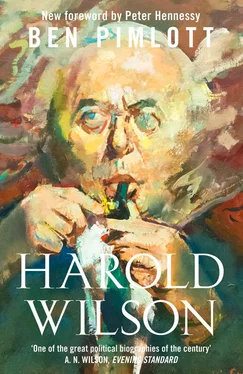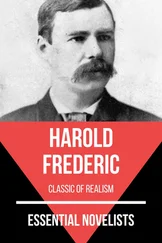Wilson knew how to juggle with and arbitrate between the political philosophies that perpetually compete for the soul of the Labour Party: social democracy; democratic socialism; and a variety of hard-left factions. This skill was matched by his sense of party structure: the constituency membership base and its affiliated trade unionists; the relationship with the Trades Union Congress; the Parliamentary Labour Party; the Shadow Cabinet and the Party’s National Executive Committee and its annual conference. His word power, his sharp wit and his plethora of personal relationships enabled him to pursue his ambition, with considerable success, of turning Labour into the natural party of government, rather than operating in ‘a Conservative country that sometimes votes Labour’, as Reggie Maudling, a former Tory Chancellor of the Exchequer, liked to put it. 4
For all his striking achievement in the course of a single summer in 2015 in capturing the base and the leadership apex of the Labour Party (with considerable support from the leaders of the fewer yet larger conglomerate trade unions), Jeremy Corbyn is simply not in the Wilson class. Crucially for Corbyn, his wit, his style, his policies simply do not run in the crucial middle, including the bulk of the PLP. In terms of jumping and clearing the Labour Party’s internal fences, Wilson was a Grand National winner; Corbyn has yet to win a local point-to-point. The gap between them as parliamentary performers in the House of Commons similarly yawns chasm-like. Wilson was born to excel at Prime Minister’s Questions.
Their pre-leadership formation and experience also make for the starkest of contrasts. Wilson, like the classic scholarship boy he was, had prepared meticulously for the Labour leadership and ultimately for the premiership. He knew the Civil Service intimately as a temporary official in the War Cabinet Office, *and rose rapidly through the junior ranks of the Attlee government to become President of the Board of Trade in 1947, at thirty-one the youngest member of a Cabinet since Pitt. A seemingly principled resignation in April 1951, alongside Nye Bevan and John Freeman, in response to health service cuts and the cost of rearmament when the outbreak of conflict in Korea chilled the Cold War still further, opened his credentials to the left of the party in a way his previous technocratic prowess had not.
In opposition Wilson shadowed nearly all the big portfolios, including the Treasury and Foreign Affairs, chaired the premier select committee in the Commons (Public Accounts) and taught himself to be a sharp and often bitingly funny speaker at the despatch box and on the platform alike (he had been rather pedestrian at the Board of Trade). He retained his technocratic edge and, as a trained economist and statistician, was numerate as well as literate. By the time of Gaitskell’s sudden and unexpected death, Wilson had all the gifts and fitted to perfection the mould of the gritty grammar school meritocrat – part of the rising generation that would sweep away the last vestiges of amateurism in Whitehall committee rooms and industrial boardrooms alike.
Wilson, however, never acquired the full trust or affection of many of the right of the Labour Party (several of whom thought he took careerism and opportunism to new heights), but he was admired, respected and feared, especially by his opponents. He was a stunningly effective Leader of the Opposition between February 1963 and October 1964. First Harold Macmillan, in his last, no longer ‘Supermac’ phase, and then the aristocratic Alec Douglas-Home were almost out of central casting as foils for Wilson.
Jeremy Corbyn’s CV on assuming the leadership of the Labour Party was entirely lacking in job experience. His apprenticeship placement had been on Labour’s outer-left rim, as narrow and rigid (if principled) as Wilson’s had been wide, fluid and adaptive. He neither planned for nor expected the party leadership. He was without ministerial or Opposition front-bench experience. In the summer of 2015 it merely seemed Corbyn’s turn to be the traditional tethered goat that the Labour hard left offers up for mainstream leadership candidates to savage. Far from being the sacrificial quadruped, he turned out – to his and everyone else’s surprise – to be the lion of the contest. There could not be a greater contrast of formations than between those of Wilson and Corbyn, this intriguing and unproven figure with carnivorous views and herbivorous ways. Jeremy Corbyn may turn out to be a more effective Labour leader than many expect, but his long-term mission, one suspects, will not include a Wilsonian appetite for capturing the centre of the British electorate and turning Labour into the natural party of government. For that to happen, the fulcrum of British politics would have to shift several degrees to the left.
Wilson, however, did set out in the early months of 1963 to offer himself and his party as a transforming instrument to his country. Like Corbyn’s – though in a very different way – his was a transformative pitch, a blueprint (to use a noun fashionable at the time) for a New Britain. If office fell into his and his party’s hands it would not be a status quo or a ‘better yesterday’ (to adapt a phrase of Ralf Dahrendorf’s 5) premiership or administration. His stall, which he laid out with great verve throughout the election year of 1964, was both brilliantly simple and fiendishly difficult – to project the British economy onto a new and sustained trajectory of science, technology and export-led growth substantially higher than achieved so far in the years since 1945. Wilson set himself a very high bar against which he and his ministry would be judged, and the brilliance of his language, the grittiness of his style and the seemingly comprehensive approach to ‘purposive’ (a favourite adjective) government and planning plainly persuaded a sizeable slice of the electorate as to its achievability. At the October 1964 general election a Conservative majority of nearly a hundred in the House of Commons was converted to a Labour one of six.
It was a dazzling performance and, for all the frustrations and underachievement that followed, it still has a tingle to it today that echoes in the latest approaches to growth, science and technology and the planning of long-term investment that are the currency of industrial and infrastructural politics in 2016. If Wilson were taking a centenarian’s look at British politics today he might allow himself a dash of I-told-you-soing.
In what I still regard as the signature speech of Harold Wilson’s long political life, he found a theme at the Labour Party Conference in Scarborough on 1 October 1963 that served not only to unite all shades of Labour opinion but also caught the wider appetite for a modernity that would replace privilege with meritocracy. We learned from Ben Pimlott’s biography when it was first published that Wilson did not finally decide on this theme until the night before he delivered his conference peroration, and that he did so at the prompting of his Political Secretary, Marcia Williams, now Lady Falkender. 6
Wilson’s speech built upon his analysis of the deeper causes of Britain’s relative economic slippage by providing an outline of the attitudes and the ‘new industries which would make us once again one of the foremost industrial nations of the world’. As Ben wrote, ‘The climax was a declaration that enraptured his audience, made a profound impact on the press, and was frequently to be quoted – at first in his favour and then against him, in later years’: 7
In all our plans for the future, we are re-defining and we are restating our Socialism in terms of the scientific revolution. But that revolution cannot become a reality unless we are prepared to make far-reaching changes in economic and social attitudes which permeate our whole system of society.
Читать дальше











